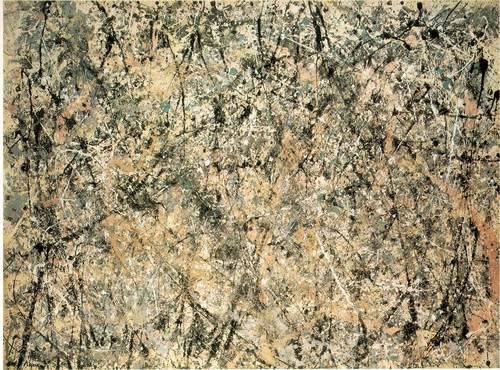
Clement Greenberg (1909-1994), although an art critic, not an artist, is to me the most fascinating figure in 20th century U.S. art history.
He first made a splash with the essay "Avant-Garde and Kitsch," published in the Partisan Review in 1939. Here, BTW, is a link to a discussion of the history of the PR. But I'm more interested in that word "kitsch." Nowadays it has a somewhat more favorable, or at least a less unfavorable, meaning than Greenberg meant to give it, in appropriating the German word for tacky.
Greenberg would dislike the note of sentimental indulgence that has crept into some usages of the word. He wrote, "Kitsch is mechanical and operates by formulas. Kitsch is vicarious experience and faked sensations. Kitsch changes according to style, but remains always the same. Kitsch is the epitome of all that is spurious in the life of our times. Kitsch pretends to demand nothing of its customers except their money -- not even their time." No fondness of any sort there.
Moving on ... Greenberg is perhaps best remembered as the great enthusiast of the New York School, the abstract expressionists around Jackson Pollock, after the war. I've pasted a photo of Pollock's Lavender Mist (1950) above.
Amongst his writings in that vein, the one that comes to mind first is an essay, "The Crisis of the Easel Picture." A painting the right size to allow the inference that it was created on an easel is also a painting of the right size to hang on a wall, and create what Greenberg called "the illusion of a box-like cavity" in that wall.
Pollock didn't paint on an easel. At least those works for which he acquired his own notoriety weren't created that way. He used much larger canvases than those we associate with easels, they were affixed to the floor of his studio, and he poured or dripped paints down upon them. Here's a discussion and demonstration. of the technique on YouTube. Greenberg was saying that this dripping is one response possible to a crisis created by, for example, Matisse and the attack upon three-dimensionality.
I bet you didn't recognize, when I referred to Greenberg's first "splash" at the start of this post, that I punning.
Comments
Post a Comment